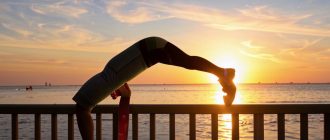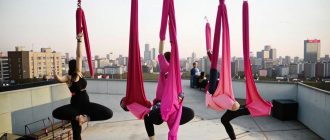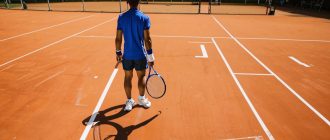On May 15 at six in the morning, Alexander started from Sergiev Posad. He had two days of running ahead of him and 163 kilometers to the center of Moscow. At the finish line the athlete was met by a large company, and thanks to such a start it was possible to raise more than 40 thousand rubles. We found out how the runner started to cover distances of more than 100 kilometers and do charity and why the athlete is not satisfied with himself, although he set a personal record.
– Is this your first charity marathon? What inspired such a brave deed?
– Yes, the “Running for a Miracle” race is my first charity experience. I have been a member of the athletes’ team of the Life as a Miracle Foundation since February of this month. I got the idea for the race from an acquaintance. I was sitting on May holidays, it was somehow boring, so I decided to try it myself.
– Why did you choose this particular fund?
– I have wanted to do charity work for a long time. At one time I worked together with Igor Lisnik – he is also a member of the team “Running for Miracle”, a good athlete, a fast runner. It was from him that I learned about the foundation: I followed its activities, read its posts, and donated money myself.
I am a skeptic in general: I need to understand that the money goes where I donated it. Since there were no doubts – I followed Igor’s activities – last October I wrote to the team captain and became an athlete for the Life as a Miracle Foundation, which helps children with liver diseases.
– How did you start running ultramarathons in the first place? Where do you get the strength to run such distances?
– Because of the pandemic, there was a hunger for running. All last April I was sitting in four walls and did nothing but general physical training. When the relief began, I participated in a 24-hour run from Wild Family. The point was to run as far away from the city center as possible. It was tough, but after running 115 kilometers, I realized that I liked it.
Longer runs are more appealing now. When there is speed work, you can hardly breathe, you are constantly pushing yourself. But long distance runs are designed for endurance: you distribute your strength correctly, you can stop for a rest, choose where to slow down and where to speed up.
– Judging by your Instagram, only in April and May you ran solid distances: 117 kilometers in the mountains of Dagestan and 163 kilometers in Moscow. Has the distance of more than 100 kilometers ever frightened you?
– Yes, I thought for a long time that people who run 100+ kilometers are crazy. I didn’t understand how they did it.
We had a role model in our running club. We went to a race near Suzdal. Then I ran about 30 or 40 kilometers and almost did not get tired. And he ran 109 kilometers. When at the end I saw him scratching like crazy uphill before the finish line, I experienced a very powerful feeling. Since then, I try to give my best at the finish line, so that when I cross the finish line, I have no energy left at all.
So I started to think about long distances, and in a month and a half I ran three hundred-kilometer races, between which I did not prepare or recover much.
– How is it possible? Is that even possible?
– I did not expect that in the “Run for a miracle” will be such a long distance. When I started the Challenge, I thought it would be 50-60 kilometers at most. For me without training – it’s like snapping seeds. But when it got over a hundred, I realized that it would be very difficult. I did not run the declared 246 kilometers until the end, the total turned out to be 163.
Before “Running for a Miracle” I had only two running training sessions: on May 1, I ran 10 kilometers at an easy pace, and in late April – 117 kilometers in the mountains of Dagestan. I prepared for Dagestan in 2-3 weeks: I learned how to use sticks and started to gain altitude. Perhaps these 163 kilometers are the merit of Dagestan. But, unlike the first distance, here I had to do my best and not fall apart.
Running alone is difficult: I need company even for short distances. In ultra-race competitions you are left to yourself and your thoughts for 24 hours.
– Do you listen to something during the race?
– Absolutely. I can’t do without music. I start to hear my breathing, the ground squelching under my feet – it’s very demotivating. I use wireless headphones: first I put one in, and when it sits down I change it to another and charge it at the same time. That way I can get through the day without any problems.
I have playlists on my phone for different distances. The playlist is very diverse. Mostly hits, as they say, from my 2007. The playlists include everything from classical music, foreign rock to modern Russian rap, excuse me, and drum ‘n’ bass. For the last kilometer, I always go for the fast, driving music, which I pick up the pace to.
– Do you have any thoughts of giving up and giving up on the distance?
– Yes, of course. I noted to myself that the longer the distance, the farther the “wall” that runners catch. When I first started running, I encountered it at the 30th kilometer. In Dagestan – at the 80th kilometer. I thought: I would reach the nearest food station, finish – and take me home, I don’t want anything else. On the “Run for Miracle” the wall was at the 105th kilometer.
We started on Sunday morning, my legs were worn out, the pain was hell. I only slept for 1.5 hours. I woke up as if in a fog: I was answering something to the people who were gathering me up, braking me. We got moving, and I realized I was practically unable to walk. I had cut my calluses right before I went out, I was walking like on hot coals. I thought I was going very slowly, that I wouldn’t get anywhere, and people were looking at me – it’s a big responsibility. I was piling one thing on top of another – a huge snowball, rolling down. Morally I was crushed by the thought that I had created such a frenzy and was about to give up everything.
For two kilometers I just walked, limping, unable to swing. Support from friends and coffee helped.
– How is the pain felt during the marathon?
– The pain is very intense, but you gradually get used to it. I always thought I had a high pain threshold: I could accelerate with blisters. To get used to pain, you have to diverge a little, feel it, and then adrenaline is thrown in.
– How do you fight the “wall”?
– Constant communication with friends helps. I can stop for 2-3 minutes, think, have a snack. Sometimes I just move through “can’t”: I slap myself on the cheeks to knock out bad thoughts, and go on with the song. If you stop in the middle of a marathon, you can’t get back on track. You gotta keep moving. It’s like sharks: if you stop, that’s it.
– How did the hashtag #uschataisanka come about?
– I was overconfident at the time (laughs). I was sure that my performance wouldn’t raise too much money. I started with “stories”, in which I offered the guys to beat me up. I was told that not many people watch “stories”, so I made a thorough post. I collected photos from all the races where I was banged up: barely walking, barely breathing. I finally found a use for them.
– What was your first reaction when you saw that the distance exceeded 200 km?
– I still remember that day. I was at the country house, the network is not very good there. I published the post closer to night, and made a cross-post on Facebook. By midnight, it was already 80 kilometers. And I realized: something was wrong… I wanted to say “pot, don’t boil”, but the distance had not yet reached a critical point.
When it was over 200 km, I realized that I had to close the gathering. The distance seemed doable, but hard to accomplish. When I reached 250 km, my friend called me and said that he would give me another 100 km (laughs).
Honestly, I didn’t expect such a rush. My eyes were glazed over when I updated the donation page and realized where I had entered. At the same time, I was happy to see how many people responded. I think they still wanted to help the kids, rather than trying to bump me off.
– Was it important for you to run alone? Why didn’t you organize a relay race, for example?
– Not that alone, more like by myself. I was offered to split the race into several days, but I realized that it would be better to draw attention to the foundation with one long run.
I was very happy with the support of my friends. So many people responded: meals, escorts, lodging. I’m still trying to formulate words of thanks, but it sounds like an Oscar speech. When you come out with a list and start I want to thank my mom, my dad… and then there is such a sheet of text.
– What did you take into account when you made your itinerary?
– The itinerary is my downfall. I worked it out on my own, without consulting anyone. It rained for a week or two and the roads were washed out. As a result, I spent a lot of time wandering through the swamps. Water up to ankles, and you jump from puddle to puddle, not even looking for elevation, and choose a less deep one to just go on. 80 km of total hell in the form of grease really spoiled the physical condition of the legs.
– In the Telegram channel, where the race was broadcasted, I saw that at the very beginning of the marathon the bike of the escort broke down. What other difficulties did you and the support group have during the distance?
– It was the moment when the support group needed support. Initially it was planned that the two of them would lead me on bicycles for the whole distance, but the route turned out to be unsuitable and they were immediately left far behind. The support was carrying all the food and water, so for the first 17km I was without everything. It was lucky that there were springs along the way. The guys ended up waiting for me at the intersection points with the roads so I didn’t have to wade through the forest.
I am thrilled with the guys. There was a story about wanting a cheeseburger. I told them: guys, I need a cheeseburger at the nearest food point. They said, “No problem. That cheeseburger was probably the most cosmic cheeseburger I’ve ever had in my life.
I’m glad I brought my sticks. I used them as a counterweight: I had a watch on my left hand, and at the end of the marathon, my body was so tired that the weight of the watch increased 10 times.
– At what stage did you have to reorganize the route?
– I started to rearrange it right away on Sunday morning: I realized that I would not run so much with such legs. There were points on the route where people could come to support me and run with me. The guys rearranged the route between these points so that as many people as possible could come.
– Are there moments of happiness during marathons?
– Yes, the endorphin release is constant. Especially after the “wall”, when you realize that you can run, when the breeze blows in the heat, when you drink water. But the main moment of happiness is the finish line. As soon as I realize that I have just a little bit left to finish – this time I recognized the Serpukhovskaya district – I start to give my best. Energy appeared. I put all the reserve I had stored into action.
– Who met you at the finish line in the STOY bar?
– There was such a big crowd there, honestly. I still look back at the photos. Even people I don’t know from outside the running community came by. The guys from my club Mikkeller Running Club Moscow were waiting at the finish line. I took down the banner that was replacing the finish tape, ran somewhere forward, everyone piled on top of me, loaded me onto a cart and carried me to the bar.
– How did you feel the day after the race?
I could hardly move at all the first day. My legs were swollen, I added 2-3 sizes. The third day I didn’t leave the house, I minimized all movements except for the kitchen, refrigerator and bed.
– How do you recover after such distances?
– Contrast showers on my legs. I make an iodine net – it’s perfect, it always helps. I eat. I think I lost a kilogram and a half during the race. I drink water. I was very dehydrated, running in the heat. I think to run a couple of kilometers this weekend to speed up the recovery process.
– How well did your expectations from the marathon coincide with reality?
In terms of organization, everything exceeded expectations. Of course, I’m not satisfied with myself: I chose an unsuccessful route, I couldn’t cover the whole distance. But people did such a great job… This distance – 163 km – is the longest I have run, but alone I would have finished at the hundredth kilometer. People have been so supportive, they’ve done everything. I’m just the person who moved my legs.
You too can get involved in the fundraising by following the link.






